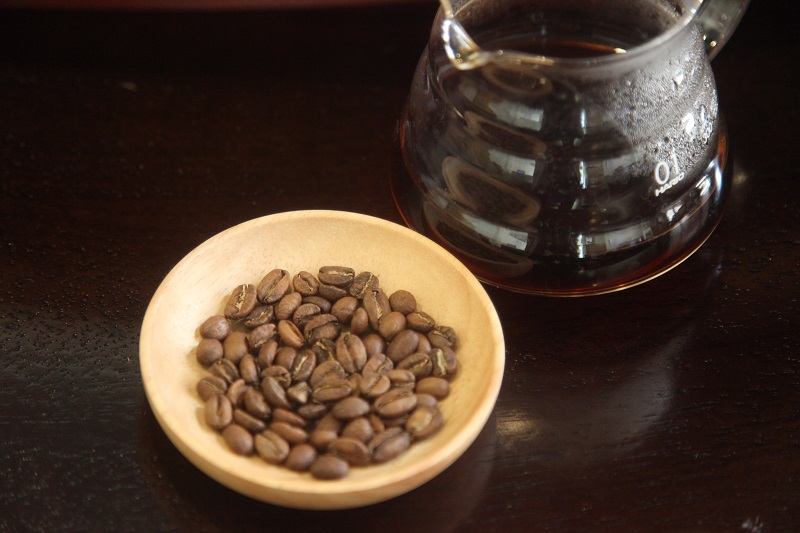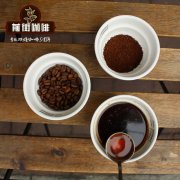Tyrola Cherry Project Tairora Cherry Proje of Baroda Manor, Papua New Guinea

Professional coffee knowledge exchange more coffee bean information please follow the coffee workshop (Wechat official account cafe_style)
Asian coffee is not the same as in Europe and the United States, generally do not like sour, hate bitterness.
I generally don't like sour. I have no choice but to choose coffee beans with a deep degree of cultivation.
However, there is a new producing area-Papua New Guinea Coffee. The coffee beans produced have the rich and solid taste of Mantenin, but the acidity is very low and the flavor is very clean, so it is a good choice to dislike sour taste!
Papua New Guinea, you may be a little strange to this place of origin, so let the editor introduce it to you.
Papua New Guinea is located in the southwest Pacific Ocean, the circum-Pacific volcanic belt, the land belongs to volcanic geology, has a fertile soil, is an important natural condition for good coffee.
Although there is a good environment, the share of coffee beans in the world is not high, only 0.7%. Coffee is very important to Papua New Guinea and is the only cash crop in the highlands. 40 per cent or more than 2 million smallholder families in the country depend on coffee beans and are a very important source of livelihood.
Most of the coffee beans in Papua New Guinea are grown in the highlands, and the proportion of Arabica is as high as 95%. The main varieties are bourbon, Arusha and Mengdonovo.
In Pakistan, important coffee producing areas are East Highlands, Enga, West Highlands and Chinbu provinces, most of which are 1200-1900 meters above sea level, with a Central American style. If the production system is dominated by small farmers, a few have large estates or government-specific support programs. The coffee beans in Papua New Guinea have been respected by many people in recent years because of their solid taste, low acidity and clean flavor, which is in line with the Asian preference for coffee and is a rising producer of Asian coffee.
In addition, the industrial and commercial time
The coffee beans we recently introduced to Papua New Guinea are coffee beans participating in the Tyrola Cherry Project, which are from the Baroda Manor in the eastern highlands of Pakistan.
Yuban of Baroda Manor. Ben Colbran was founded in the 1960s. The Ke Brown family has always played the role of collectors and intermediaries of large multinational traders to ensure the stable and high quality performance of coffee under direct trade.
During the peak season, the Hongtong coffee cherries harvested on the same day will be immediately sent to the washing department of Baroda Manor for treatment, and coffee farmers will be paid immediately after the coffee cherries have been screened and checked for quality. After that, the manor will begin a series of treatments: depulp, fermentation, washing, drying and so on.
The Cobham family, now in its third generation, is managed by Ben's son Nickel and grandson Chris. They not only run the estate, but also purchase coffee berries from various estates and independent small farmers.
.
In 2005, Chris started the Tyrola Cherry Project (Tairora Cherry Project), which aims to improve the transparency of transactions and improve the procurement process with neighboring small farmers. The Tyrola Cherry Project is a mixture of four varieties, including Tyoica, Arusha, Bourbon and Kaddura.
The beans come from every corner of the village, and Tyrola is the largest tribe in the region, so Chris chose to use it as a name to symbolize all the people in the area who contribute to coffee.
In early 2010, MTC (Australia's well-known exquisite coffee importer) and the Colleen family began to work together to bypass large multinational traders and focus on discovering unique, small batches of fine coffee. The Coban family examines the small farmers they work with every season and buys the best coffee berries in the region.
Over the past 50 years, with the cooperation of various manors and small farmers, the Ke Brown family has not only provided assistance in its expansion and operation, but also built roads, piers, schools and lanes in recent years. The Ke Brown family is not only the estate where the residents of the Ramali Valley sell coffee berries, but also the object of their respect.
Would you like to try this special batch of coffee beans from the Tyrola Cherry Project in Papua New Guinea?
This coffee bean has the sweet smell of maple syrup and the sweet taste of ginger black sugar. It is worth knowing that whether it is medium-roasted or medium-deep roasted, it tastes good either on a single product or with milk.
Important Notice :
前街咖啡 FrontStreet Coffee has moved to new addredd:
FrontStreet Coffee Address: 315,Donghua East Road,GuangZhou
Tel:020 38364473
- Prev

Papua New Guinea Sigri Sigri Estate Information Story Introduction New Guinea Coffee Bean Origin
Professional coffee knowledge exchange More coffee bean information Please pay attention to Coffee Workshop (Weixin Official Accounts cafe_style) Papua New Guinea Coffee Sigri Manor This project aims to establish sustainable working relationships with Sigri Manor, neighboring villages and coffee producers. This relationship is intended to support the development of further projects and recognizes the need to improve quality and flavor and to enable
- Next

Flavor characteristics of Colombian Emerald Colombian Coffee
Professional coffee knowledge exchange more coffee bean information please follow the coffee workshop (Wechat official account cafe_style) Colombia ESMERALDA (emerald) producing area / manor medellin production geographical environment 1500-1800 meters treatment washing special caramel sweet fruit sweet almond flavor introduced in Medellin Antioquia Province Colombia
Related
- Does Rose Summer choose Blue, Green or Red? Detailed explanation of Rose Summer Coffee plots and Classification in Panamanian Jade Manor
- What is the difference between the origin, producing area, processing plant, cooperative and manor of coffee beans?
- How fine does the espresso powder fit? how to grind the espresso?
- Sca coffee roasting degree color card coffee roasting degree 8 roasting color values what do you mean?
- The practice of lattes: how to make lattes at home
- Introduction to Indonesian Fine Coffee beans-- Java Coffee producing area of Indonesian Arabica Coffee
- How much will the flavor of light and medium roasted rose summer be expressed? What baking level is rose summer suitable for?
- Introduction to the characteristics of washing, sun-drying or wet-planing coffee commonly used in Mantenin, Indonesia
- Price characteristics of Arabica Coffee Bean Starbucks introduction to Manning Coffee Bean Taste producing area Variety Manor
- What is the authentic Yega flavor? What are the flavor characteristics of the really excellent Yejasuffi coffee beans?

